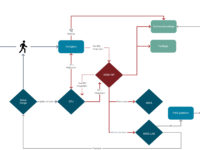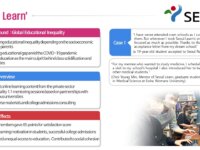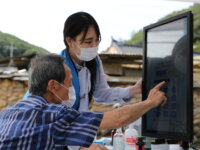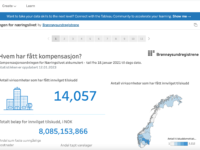Recognising the need for a high level of Cyber Security across the public sector, the National Cyber Security Strategy (NCSS) called for the creation of a Common Cyber Security Baseline Standard across all Public Sector Bodies and for the establishment of the “CORE Network” to share best practice for cyber security across Government. This project embodies the Irish Civil Service Renewal 2030 Strategy by delivering evidence-informed policy and services, harnessing digital technology and…
Case Study Library
Where innovations are collected and shared to disseminate and replicate good ideas

Innovations:
0
This website, as well as any data and map included herein, are without prejudice to the status of or sovereignty over any territory, to the delimitation of international frontiers and boundaries and to the name of any territory, city or area.
To help citizens, health professionals and authorities to handle the Covid-19 pandemic, TISK IKT, a set of interconnected digital solutions, was set up by the Norwegian Directorate of Health. Through exchanging health data, it set a national record in cooperation between 9 government agencies and the medical association to innovate new digital solutions at extremely high speed.
'Seoul Learn' is a project that provides equal educational opportunities to the vulnerable population that has difficulties in accessing educational resources due to socioeconomic reasons. Educational inequality in Korea has been identified as the main culprit behind generational poverty. The project offers various educational services via public platforms to prevent education from causing inequalities.
Since its inception in 2020 for the purpose of realizing a digitally inclusive society, the Digital Competency Center Project has been providing digital competency training for citizens to enjoy the benefits of digital technologies and services as their lives and socioeconomic activities are rapidly digitalized. Thanks to the innovation, any person in Korea can visit their local Digital Competency Center for a free, hands-on training programmes to foster skills for using mobile or digital…
The Office of the Prime Minister of the Government of Kosovo, together with GIZ in Kosovo and Innovation Centre Kosovo (ICK) have developed the Civil Service Innovation Program for Implementation of the Stabilization and Association Agreement (Gov4SAA). The program enables civil servants to identify a challenge and then design a solution in the form of innovative products or services to be used by citizens, government, and other relevant stakeholders.
To accommodate the growing foreign talent pool in Vilnius and support the city’s economic development, the Lithuanian Government established a unique one-stop-shop style service centre for foreign talent. Specialists representing various important state institutions gather in one place to provide services to foreign talent relocating to Vilnius. This is the first centre of its kind in Lithuania and comes as a great relief for foreigners while improving Lithuania’s image and increasing its…
Case Study
‘Performing and Visual Arts’ Ambedkar Schools of Specialized Excellence (ASoSE): Mainstreaming…
Performing and Visual Arts ASoSE(s) represents India’s first bold endeavour to reimagine secondary education that currently offers students only 3 pathways. This innovative public school model offers learning in ‘Music’, ‘Visual Arts’ and ‘Filmmaking Acting and Media Studies’ for low-income students with creative aptitude/interests. They empower students with artistic interests to unlock aspirational higher-ed and career pathways in the creative field of their choice alongside…
Aware of the ongoing digital transformation and user needs, HRDKorea (Human Resources Development Service of Korea)partnered with the private sector to leverage industry-leading technology for the creation of the Mobile National Technical Qualification Service. The certificate layout was fully reconfigured to fit the smartphone environment and used blockchain technology to develop a service that now allows users to immediately access their certificates on their mobile phones. The previous model…
The Intergovernmental Network and Competition for regulatory reform was designed to provide a driving force for regulatory reform and for mutual learning between local governments. It moves away from existing top-down regulatory innovation and rather motivates bottom-up regulatory reform policy, enables mutual learning of best practices, and allows local governments to benefit. Also, the final beneficiaries of the Network are citizens and businesses, as when regulatory innovation increases, so…
The digital compensation scheme was created to support Norwegian businesses to endure the financial consequences of the Covid-19 pandemic. The scheme designed was quick, efficient, and can be relaunched when needed. Checks are done before the disbursement, which minimizes the need for verification afterwards and also prevents misconduct. Applications are approved by an auditor, and then automatically processed and checked against information from a variety of sources and registers. Information…






